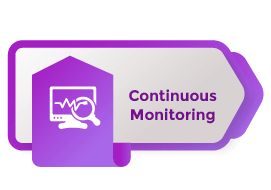How AI will Influence Electronic Components Supply Chain?
For a decade now, we have been teased about how Artificial Intelligence (AI) will change our lives.Transitioning from hype to reality, today, AI is gaining momentum in almost every industry; thanks to the emergence of Internet of Things (IoT) and Big Data, the explosion in computing power and storage and the algorithmic advances. While companies across the globe are embracing it to boost their productivity, one particular sector that is expected to witness massive benefits through it is Supply Chain Management (SCM) for Electronic Components. Proper utilization of AI can check defects in manufacturing, create strategies to face new challenges and unforeseen incidents and reduce human engagement in basic and repetitive tasks.
Nowadays, AI-powered Apple’s Siri and Amazon’s Alexa and TV Fire Stick have become common household names. We get obsessed with latest iWatches, Fitbits and other fashionable smart devices to make our everyday life easier and happier. Nearly, all the new cars in the US are programmed with onboard navigation features that automatically learn passengers’ travel habits and preferred routes.
Due to the need for real-time analyses and processing of large and complex data, the field of Supply Chain Management, particularly in the electronic component industry is primed for AI to lend a virtual hand.
Below is a quick list of the ways AI is impacting and can impact the electronic components supply chain.

Advanced Traffic Management
By monitoring, assessing traffic and predicting traffic congestions beforehand, AI can help the drivers transporting products from one place to another avoid the rush hours and jammed routs. They can also be sent alerts and advice on the best route through predictive algorithms supported by the AI system. Smart traffic systems like SURTRAC of US’ Rapid Flow Technologies is already empowering commuters with real-time traffic updates throughout fluctuating road conditions in the US.

Continuous Monitoring
AI allows you to continuously monitor huge amounts of data from multiple sources from anywhere in the world in real-time. The sources can be news, social media trends or weather forecasts, all of them could have a very real impact on demand and supply of your products.

Machine Learning
Machine learning, a part of AI that is associated with data analytics has a massive impact on inventory management. By adopting endless loop techniques, the rate of errors can be reduced by up to 50%, which as a result will help you do away with lost and missed sales.

Better Customer Satisfaction
Smarter inventory practices, precise replenishment planning, and accurate demand forecasts can help electronics component manufacturers experience measurable growth in productivity and output. As AI makes SCM smoother and reduces costs, OEMs can choose to pass these savings to their customers in the forms of shorter restock time and reduced prices.

Chatbots
Nowadays, chatbots are gaining popularity worldwide and becoming a common feature on company websites. With chatbots, manufacturers and distributors can assign repetitive and minor tasks to AI software rather than spending time and money on hiring and training people. Chatbot tasks differ from business to business; generally, they are used in tasks like placing purchase orders and filing, receiving and documentation of invoices etc.
Conclusion
In the near future, autonomous vehicles are expected to have a substantial impact on supply chain logistics. The above mentioned are a few of the instance; there are many other ways AI is influencing and will influence electronics component supply chain management.
